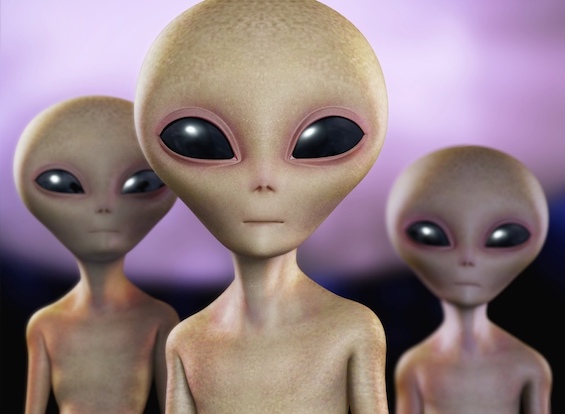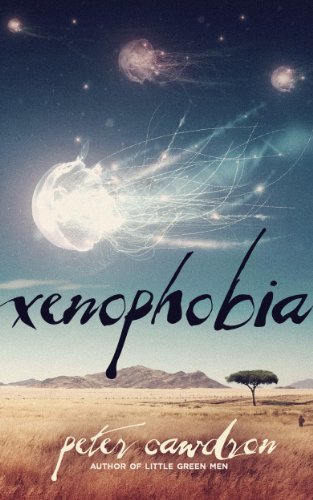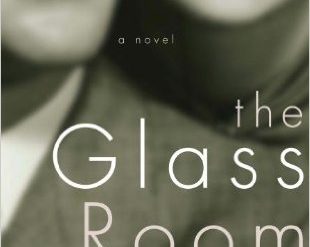
Few writers have thought more deeply about how First Contact with extraterrestrial intelligence might unfold than the Australian science fiction author Peter Cawdron. To date, Cawdron has published fifteen novellas and novels on the theme (with three more due out in 2021). And in Xenophobia, the second book in the series, he demonstrates what might be his most incisive thinking about the subject. Until nearly the end, this insightful First Contact novel is a brilliant tale of a fantasy gone awry. Only in its ending, which is both pat and preachy, does Cawdron fail to deliver what might have been a minor masterpiece.
A story set in a war zone in the African interior
Xenophobia opens in the not-too-distant future at a tiny jungle hospital in Malawi operated by Médecins Sans Frontières. (It’s better known in English as Doctors Without Borders. And for the benefit of those who are geographically challenged, Malawi is a small former British colony located in southeastern Africa. It shares borders with Tanzania and Mozambique to the east.)
Xenophobia (First Contact #2) by Peter Cawdron (2013) 396 pages ★★★★☆

There, two European doctors and a staff of local nurses struggle against disease and the wounds of civil war under the constant threat of attack by rebel soldiers. A small peacekeeping detachment of US Army Rangers protects them. Suddenly, the helicopter they were expecting to deliver supplies instead arrives with orders for both the soldiers and the doctors to evacuate the hospital. Mysteriously, both the US and the United Nations are pulling out of the country.
For Dr. Elizabeth Bower, a British physician of Malawian descent, and her colleague, a Polish doctor named Kowalski, there is never any question they will abandon their patients to certain death. And their insistence on staying behind persuades Sergeant Jameson and the contingent of Rangers he leads to defy orders and remain in Malawi, too. Their plan is to ferry all the staff and patients to the nation’s capital, Lilongwe, in hopes of finding a flight out of the country from there.
In this insightful First Contact novel, humans react with fear
Yet soon after they set out on the long trek over land, startling news arrives by radio: a massive extraterrestrial vessel is approaching Earth, and all hell has broken loose practically everywhere around the world. The US and UN withdrawal from Malawi is just one minor example of the unfolding events. Widespread hysteria has led to rioting and repressive measures. And when the alien ship finally enters Earth orbit and sends probes hurtling toward the surface, the hysteria reaches new heights, and people everywhere react with mindless violence, killing what Liz Bower and the sergeant have come to understand are living creatures.
Liz is unsurprised. “[F]ear is our default response to the unknown,” she notes. “It’s a survival reaction over a reasoned response. Our history’s checkered with xenophobia—the fear of something different—different people from different countries, different cultures. We’re tribal. We want everyone to be the same.”
Face-to-face with an alien under tragic circumstances
Inevitably, Liz and the Rangers will come face to face with one of the aliens. This is, after all, a First Contact novel. But how that comes about, and what later transpires, is another story entirely. And that contact offers Cawdron ample opportunities for his characters in this insightful First Contact novel to muse aloud about interspecies communication, the morals of animals (or lack of them), and the likelihood that extraterrestrials will possess sense organs similar in any way to our own.
As Liz argues, “if we can’t communicate openly with species [such as dolphins and apes] on our planet without reading our emotions into their responses, what chances do we have of talking to someone from another planet? What chance do they have of talking to us without there being some kind of misunderstanding?” And all this becomes abundantly clear once we meet the aliens in Xenophobia.
How would we react to First Contact?
And speaking for himself in an Afterword, Cawdron writes, “As exciting as it would be to encounter intelligent extraterrestrials, I suspect our penchant for the sensational, for conspiracies and distrust, for hidden agendas and illogical beliefs would grossly distort First Contact.” In other words, the arrival of aliens from another world would very likely trigger humanity’s fight-or-flight response. And doesn’t that conclusion ring true?
For further reading
This is one of the novels in Peter Cawdron’s insightful First Contact book series.
For more good reading, check out:
- The ultimate guide to the all-time best science fiction novels;
- Great sci-fi novels reviewed: my top 10 (plus 100 runners-up);
- Seven new science fiction authors worth reading; and
- The top 10 dystopian novels reviewed here (plus dozens of others).
And you can always find my most popular reviews, and the most recent ones, plus a guide to this whole site, on the Home Page.



























